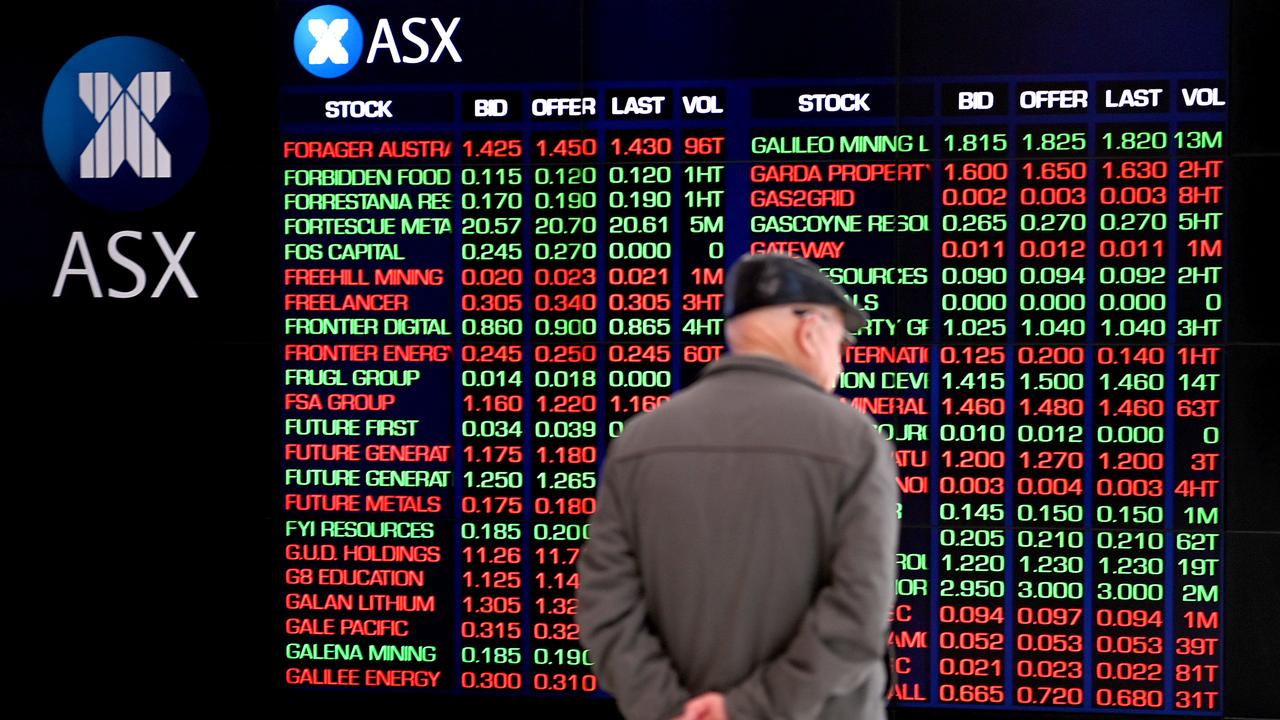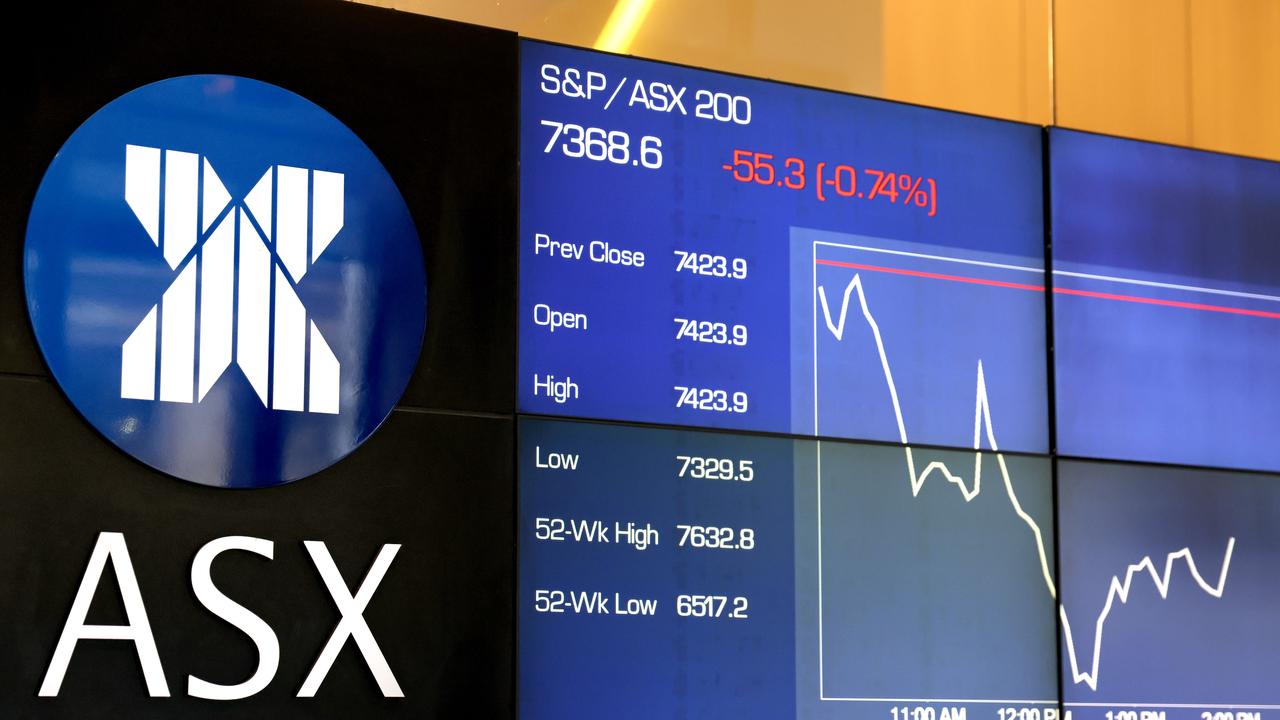ASX falls continue as investors factor in the Federal Reserve’s pivot
The ASX has tumbled to a new low after markets continued to sell off, with investors factoring in a less-than-favourable decision in the US.
The Australian sharemarket closed the weeks trading down again, following a strong pullback on Thursday as investors take into account less-favourable news.
The S & P/ASX 200 index dived 1.24 per cent to a seven-week low of 8067.5, bringing the market down 2.76 per cent over the last five days.
The Index has fallen over 5 per cent from a record high of 8514.5 just three weeks ago.
The broader All Ordinaries fell by 97.90 points or 1.16 per cent to 8317.10, while the Australian dollar continued its slide, currently trading near US 62.25 cents.
The ASX 200 weakness was broadbased, with 8 of the 11 sectors falling.

All four big banks closed lower – CBA dropped 3.7 per cent to $150.26, NAB lost 2.2 per cent to $36.37, Westpac closed down 1.2 per cent to $31.67 and ANZ finished 2.3 per cent lower to $27.94.
Financials overall sold off 2.44 per cent during Friday’s trading.
The falls continued following the US Federal Reserve’s chair Jerome Powell announcing a pivot, saying the central bank will be less aggressive on rate cuts.
Following the announcement from the Federal Reserve AMP chief economist Shane Oliver said oil, metal and iron ore prices fell on prospects for less US rate cuts and as the US dollar rose.
“Over the last week the negatives got the upper hand and shares could still fall a bit further in the short term. However, our overall assessment remains that the trend is still up, including for Australian shares, but expect a far more volatile and constrained ride over the year ahead,” he said.
Bellevue Gold was among the weakest trading stocks on the ASX 200 down 5.55 per cent to $1.105 as investors factor in a lower gold price.
Dr Oliver says the falls come at a time when the market usually trades higher, as 10 of the last 15 years Aussies shares have bounced in the two weeks until Christmas.
“In Australia, over the last 15 years the average gain over the last two weeks of December has been 1.1 per cent.” Dr Oliver said.

Of course, it’s not guaranteed and so far Santa looks to have been absent -or may have come early in November leaving markets overbought and now giving way to a focus on uncertainties around the impact of Trump’s policies and uncertainty about the Fed and RBA.”
On a weak day overall on the markets, energy, utilities and information technology stocks were the rare bright spot, closing the day in the green.
Energy stocks had a strong day with Woodside up 1.95 per cent to $23.55 while Santos grew by 0.63 per cent to $6.40. Oil and gas exploration company Beach Energy was also up 1.88 per cent to close the week out at $1.355.
On utilities stocks, Origin rose 1.4 per cent to $10.54 and Meridian gained 3.1 per cent to $5.30.



